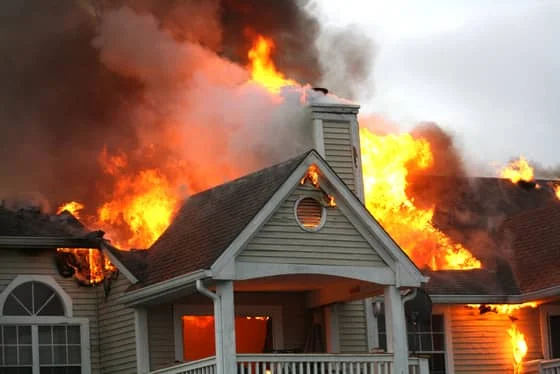Can a Refrigerator Catch on House Fire?
When considering home safety, the idea of a fridge on fire rarely comes to mind. However, even this everyday appliance can pose a serious fire risk to your home and loved ones.
The sad truth is that home fire accidents do occur. It is important for it to be known that there is a risk associated with the usage of some household items for risk management strategy. The most recent statistics shows that a large percentage of home fires are linked to combustible household items such as refrigerators among others. According to the U.S. Fire Administration, thousands of incidents of damage, injury, or even death every year are caused by fires caused by home appliances.
How Refrigerators Can Catch Fire
To comprehend the fire hazards associated with refrigerators, one must be aware of the composition of these machines. A standard fridge contains compressor, refrigerant coils, electrical wiring, and a thermostat. These elements work together to maintain a consistent temperature inside the fridge. However, if any of these parts fail or are improperly maintained, they can become potential sources of ignition.
A multitude of circumstances can lead to a refrigerated unit being on fire. Electrical would include such problems as a short circuit or frayed wires that may result in sparks that may in turn cause fire. Besides, an elevated temperature can also arise due to the excessive heat generated by compressors or confined ventilation, both of which pose a threat of fire. In some cases, improper placement or storing the fridge too close to walls can obstruct heat dissipation, further exacerbating the problem.
Strategies for Preventing Refrigerator Fires
Regular Maintenance:
- Schedule regular inspections and maintenance to spot and fix issues, helping prevent incidents like a fridge on fire.
- Examine electrical apparatus, including cables and sockets, for degradation or wear.
- Clean the rear and undercarriage of the refrigerator from dirt and trash to avoid excessive heat and allow the appliance to breathe correctly.
Proper Appliance Use and Storage:
- Do not connect too many electrical devices in one circuit, rather allow them to use different outlets.
- Ensure there is sufficient ventilation space around the refrigerator.
- Follow the manufacturer’s guidelines for installation and usage.
- Keep flammable items away from the appliance.
Smoke Alarms and Fire Safety Plans:
- Make sure to put smoke detectors in appropriate places especially in the cooking area.
- Test smoke alarms regularly to ensure they are functioning properly.
- Create a strategic plan for fire emergencies with focus on exit points and relevant emergency contacts.
- Be prepared to make a significant difference in an emergency.
Steps to Take in the Event and After a Refrigerator Fire
Prioritize Personal Safety
- Evacuate the premises immediately if needed.
- Do not make any efforts to put out large fires unless you have the training and gear.
- Focus on getting everyone out safely.
Shut Off Power
- If possible, please disconnect appliances from the power source such as the fridge or switch off the circuit breaker.
Call Emergency Services
- Once you are in the open, relay to the emergency services any relevant information concerning the matter at hand.
Evacuation Procedures
- Include a meeting point in your fire safety plan.
- Make certain that all family members are informed about the prearranged location of the meeting.
- Close doors as you leave to contain the fire and limit oxygen flow.
Post-Fire Considerations
- Consider the property’s future and potential sale.
- Explore options with fire cash buyers specializing in fire-damaged homes.
- Look into fire-damaged homes for sale to make informed decisions on next steps.
Staying Safe and Informed
In conclusion, understanding the risks associated with refrigerator fires is crucial for maintaining home safety. Being aware of possible risks, combined with routine servicing and installation of fire safety features, can greatly limit the risk of a fridge fire. By being proactive and educated, homeowners can alleviate the destructive impact fire can have on their families and assets.
We encourage everyone to conduct regular appliance maintenance and review fire safety plans with their household members. Additionally, consider reaching out to fire cash buyers if you’re exploring options for fire-damaged properties. Staying informed and proactive is key to ensuring a safe and secure home environment for you and your loved ones.

